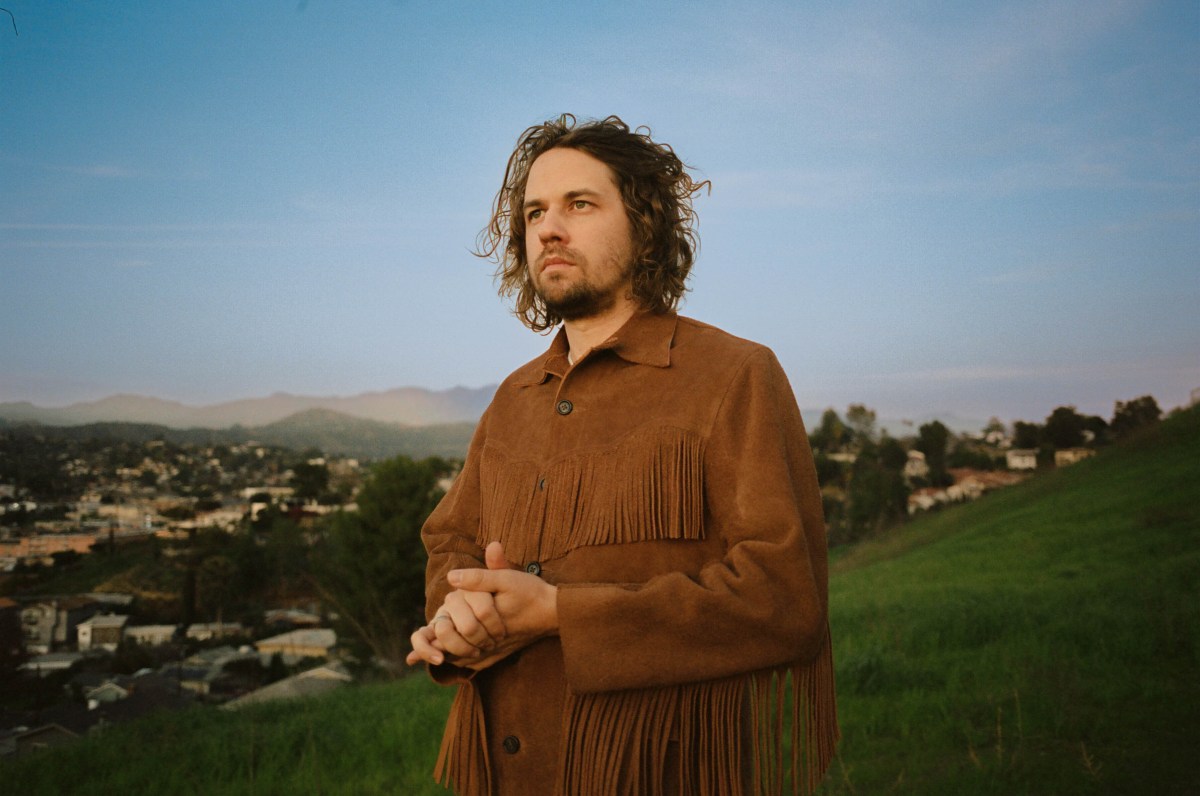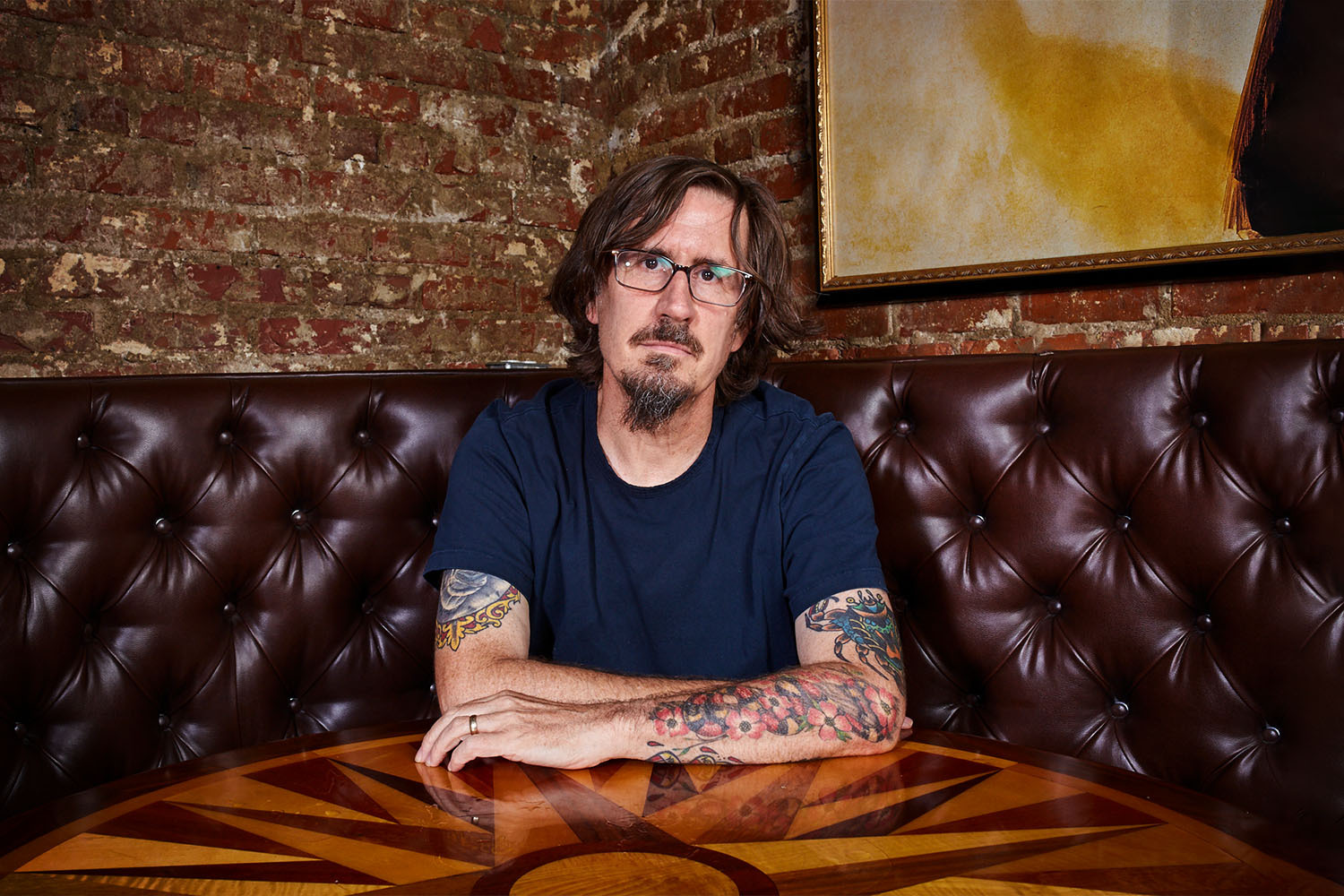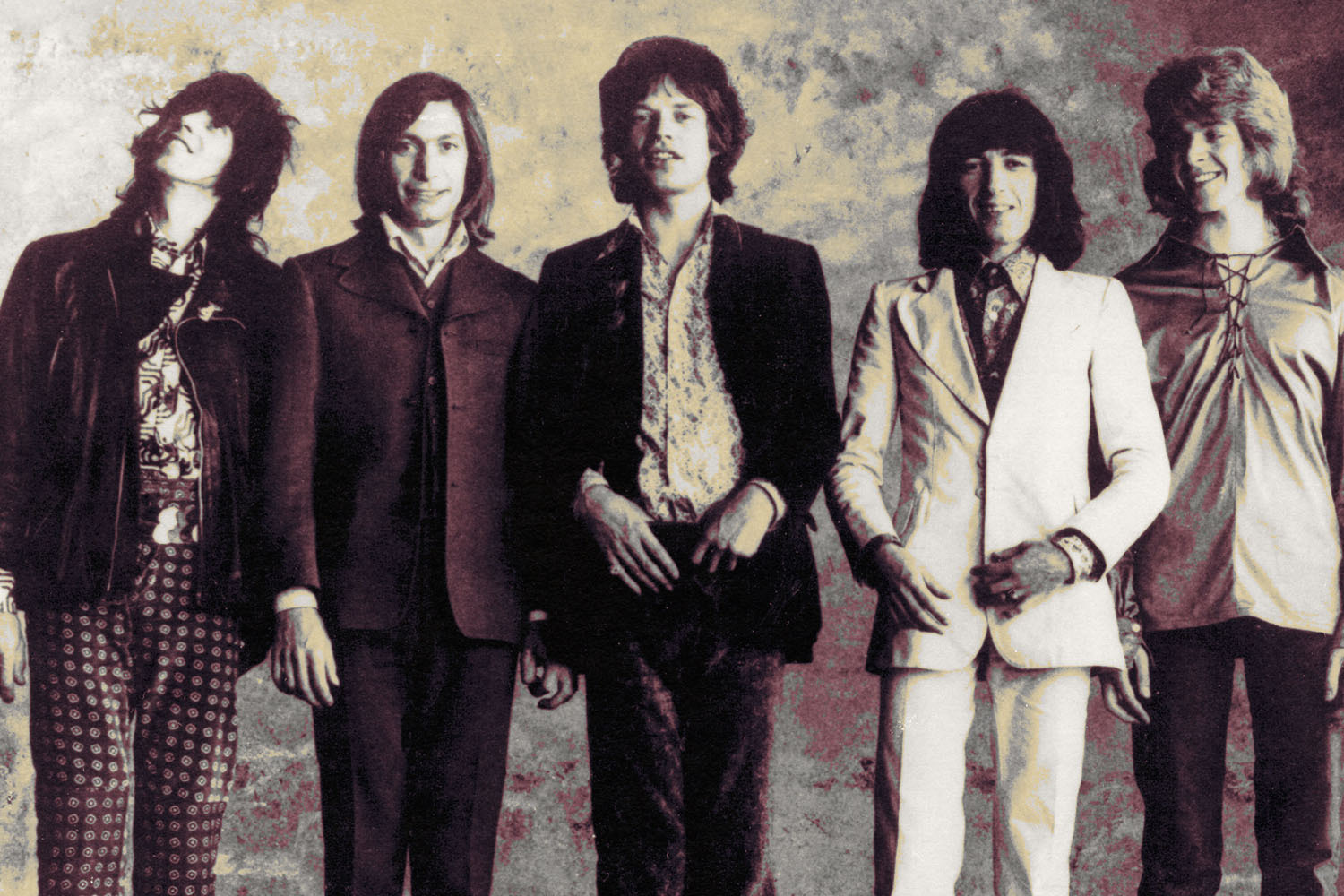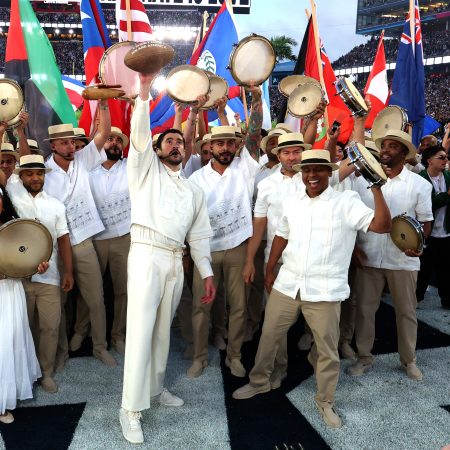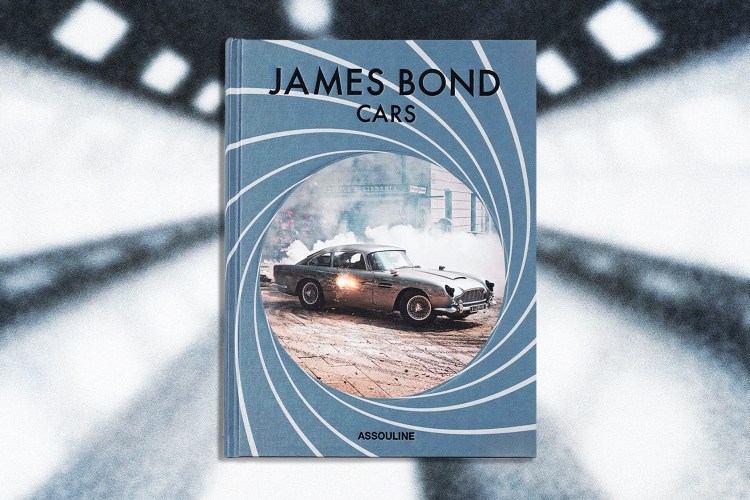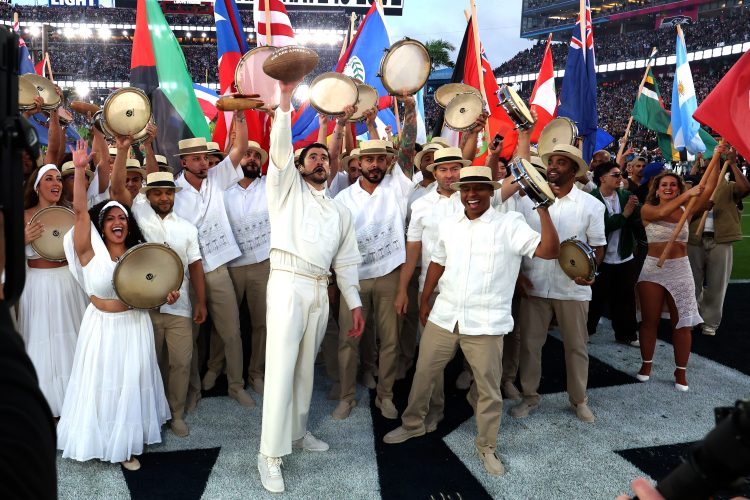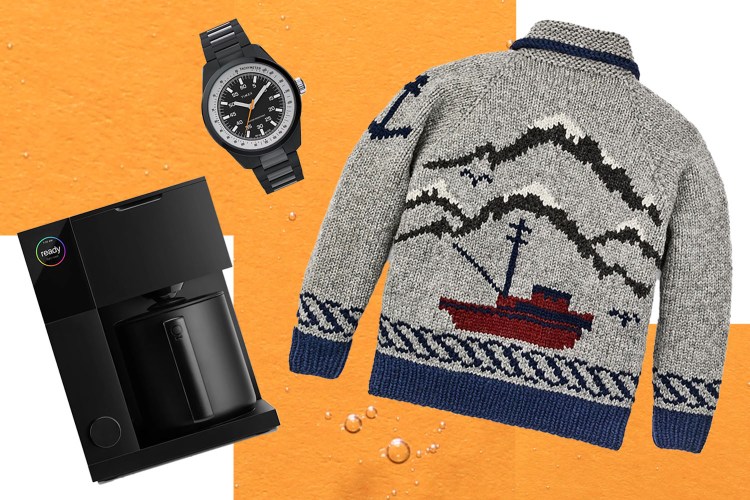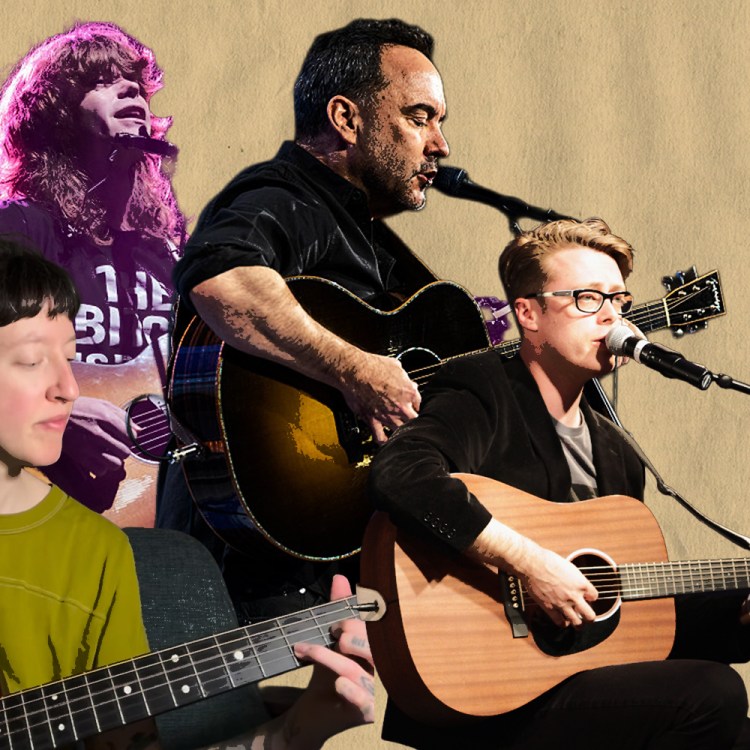On “Goodbye to Good Times,” the last song on Kevin Morby’s outstanding new album This Is a Photograph, he sings the lines, “I miss the good times, Mama. They’ve gone out of style. And I don’t remember how it feels to dance.” It’s a reference to the pandemic, yes, but it’s also more than that.
The album, Morby’s seventh, is about time: its fleeting nature, how it impacts the way we view our own past, both personally and collectively. It’s about what we choose to do with the time we’re given, about the delicate balance between moments of pure, simple joy and moments of crushing sadness. It’s about the decisions we make along the way in hopes that the joy still manages to outweigh the sadness even though we know how it all ends.
This Is a Photograph sees Morby continuing a creative streak that’s as exciting as any happening in rock-based music. Following 2019’s Oh My God and 2020’s Sundowner, he’s proven himself refreshingly adept at making records that are worlds unto themselves, each of them thematically driven and aesthetically unified. There are still Dylan comparisons to be made, and there are even more Lou Reed comparisons still to be made. But as he’s matured as a songwriter, those influences have become less a crutch than jumping off point. He’s working within established stylistic parameters, but just barely, and it makes for a thrillingly singular experience every time he puts together a new batch of songs.
We spoke with him from his home in Kansas City before he left for a week of album promotion in New York, which is being followed by an extensive European tour that kicks off later this week, and then eventually by a full U.S. tour in the fall. In talking to him, his excitement over getting to share the record with people all over the world is palpable. It’s him finally, after all this time, getting to do his part — to bring the good times back, to help us remember how it feels to dance.
InsideHook: Could you tell me what it was about Memphis that made you want to record there? I know you mentioned that it served as a stand-in for a certain kind of resiliency that was important to the theme of the album.
Kevin Morby: I started becoming very interested in Memphis before the lockdown. I’d gone there a few times. I went there for my girlfriend’s birthday, and I played this really amazing show there, and I stayed at this hotel called the Peabody. And it just, for whatever reason, had sort of planted some seeds in my mind. I knew I wanted to go back there at some point. And then, when the lockdown happened, I just got kind of stir crazy just being in my house for so long in Kansas City, and I wanted to go to a place to write. I knew I needed to sort of get out of my home and out of my city to be inspired. And there was no question as to where I was going to go. Memphis was just the obvious place.
I had discovered all these old family photographs, and I found myself becoming very inspired by the past because the present was so uninspiring and terrifying with everything happening with the virus, and it just seemed like there was really no place to go in the present other than online or sort of out into the scary world.I found the past to be this very inspiring, comforting place for me to live inside of, in a lot of ways, and to write from there.
And the past obviously has all of its own complications. Any era in history. But it felt at least less complicated in the present because of the virus, and Memphis is this place that sort of wears its past on its sleeve. It’s very good at honoring its past. I don’t feel that it’s at all stuck in the past, but…its major landmarks are still there. It’s a place where the whole city feels almost like a museum, and so it just became this place that I took a lot of comfort in.
You talk a lot in the album’s accompanying press materials about how the record is about what we do with the little bit of time we actually get to spend here on earth. Can you talk a little bit about how the pandemic impacted your views on time, after what was essentially a lost year, year and a half, two years…whatever it wound up being.
Yeah. I think the biggest thing that it did for me was it sort of froze time in a strange way. It felt like we were living inside of this glue or something. And it made me very reflective. I think, up until that point, I’d been so busy with my career as a musician and songwriter. I’d been touring so constantly that I never really had a moment to stop and think about it or be super grateful for it. I also think all of this coincided with me being in my early-to-mid thirties and having this a decade plus of my adult life to look back on in astonishment at how quickly it had gone by. I suddenly was able to, and I saw how quickly time could go by. It’s strange to talk about because I think we all have this experience, but I was … I recognized how quickly time could pass, even though, at the moment, time felt like it was moving in slow motion.
And this is all to the backdrop of a lot of death, of literally reading a death toll every day in the newspaper, so death was just … it was on my mind. It’s always on my mind, but this way it felt less abstract. Looking back on that time now, it’s so terrifying because I’m like, there was really a time where I did not want to see my parents because, if I saw my parents, and then it was very possible that one of them could get sick and die, then I would think I killed my parents. So it just had me reflective for a time when there was no virus. It became a big part of the record.
Sundowner, to me, felt like a beautiful, perfect pandemic record. I don’t know if it was just the livestream that you did for it, but I look back on that record, and it just seemed to capture something about the whole experience so clearly. And I always thought it was really interesting, because you made it before the pandemic. But This Is a Photograph is the actual pandemic record.
Yeah, it’s very interesting because Sundowner came out of me moving back to Kansas City and being alone all the time and sort of being in my own self-imposed isolation. And then we have this mandated isolation, andI was like, oh, I’ve been here before. This record that I wrote about my own isolation is going to come out this time where we’re all isolated. How strange is that?
And then, for This Is a Photograph, is sort of an album that was a reaction to the pandemic because there are some lyrical moments or some subject matter that speak to the pandemic. They’re not too much, but, again, I’m sort of singing about the past because that’s what felt comforting to me.
Also, the record is very big. There’s a lot of people on it because it was recorded in 2021, which was the first moment in time where there was finally this vaccine, and I could get in a room with other people. And, because I hadn’t seen anybody in like a year and a half, I wanted to just have as many friends involved as possible. I was trying to make this big record in a very quiet time because I thought that eventually I would be able to take it on the road and that life would come back. And, once it did, I knew I wanted to have this bigger thing to celebrate.
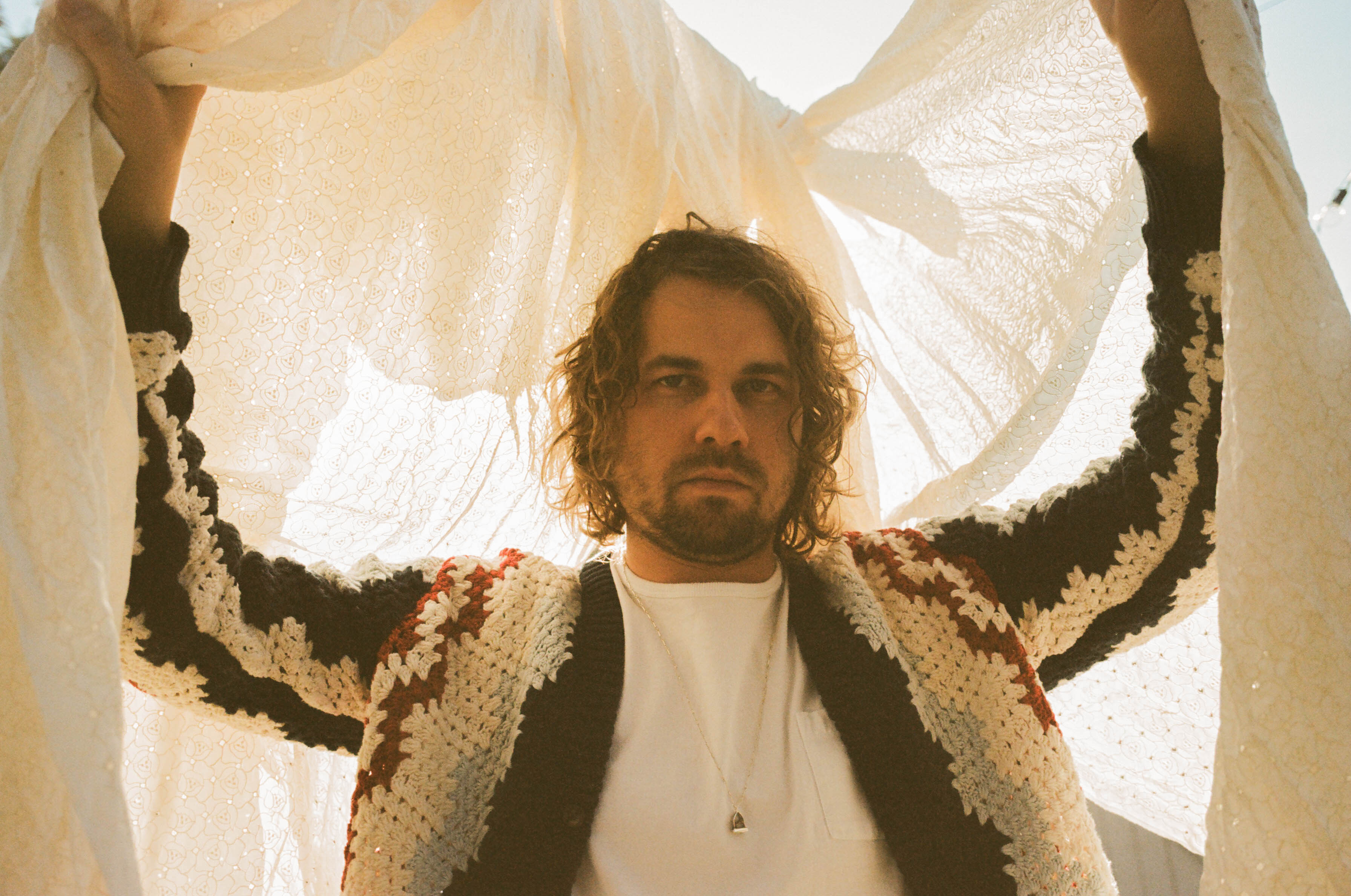
Could you talk a little bit about the role that music plays in your life right now? Not your own but other people’s. Do you feel yourself being influenced by music in a way that’s similar to how you were when you were younger? Or do you find yourself sort of hunkering down with the music that’s in your head?
It’s one of those sort of cliches where, because I make music for a living, it’s changed things. I feel like the music I listen to the most honestly is probably my own that I’m writing. I’ve written some new songs recently, and I probably listen to those more than anything.
Music forever changed once I started doing it all the time. And not in the way of like, oh, this is my job, and I get sick of my job, and it’s nice for me to turn off music. It’s not that, because music is everything to me, but I’m usually so occupied with making my own things, and I’m always working on something that ends up being what I listen to.
But with that said, someone like Tom Petty became huge to me during the pandemic, and I never had a Petty phase before that. I always liked the hits and everything, but I felt that music was speaking to me on a new level during the pandemic, again, in just a comforting way. I felt like that music was … it felt like medicine. Felt very medicinal. Like I really needed it.
I feel like you’ve placed more of an emphasis on music videos than a lot of other people recently. Can you talk about how important to you the more visual representations of your music are?
I think they’re very big. As a fan of music, I really love when there’s a visual representation to accompany something, whether it’s just really cool artwork for the album art or if it’s a video or if it’s what people are wearing on stage. For me, it’s actually the fun part. I feel like I’m an amateur of all these other things, but music is my vehicle to let me explore those things and sort of learn something new or dabble in something new like photography or like painting or getting into certain fashion or being able to wear certain things. I wouldn’t just go out wearing a Nudie suit. But because I’m going to put it on and then go play songs, it gives me sort of the right to do that or something, and it makes me feel like I’m … It’s okay if I do that. Visual representations are always really big, and they always come to me pretty early on in the songwriting process.
What do you have planned for the shows in support of this album? Will the tour be different than previous ones?
Well, I’m going out with a big band. It’s going to be about the same size band that I had on Oh My God, which will be really great, and which I haven’t done in a couple years. I’m really looking forward to it. It’s going to be a show of backup singers and some strings and a sax player. It’s going to be really fun. I’m just looking forward to being able to do something that loud and large and expansive again, especially after having most through 2020 play solo into a computer. And last year, I got to pull out a decent-sized band and do some other touring that was kind of piecemeal, just putting stuff together, but I’m excited to just really get out there and do it.
I saw the Webster Hall show with Hamilton Leithauser last fall. It was amazing.
Oh, cool. Yeah. That was with … That was like a five-piece band. That was great. It’s going to be like that but just a little bit bigger.
I wanted to talk about a topic that maybe six of our readers will care about, but can you tell me about your new Seüf guitar and how that came about, with your name on the fretboard?
Yeah, absolutely. I’m actually holding it right now. Those guys are amazing. This guitar is amazing. I went to them just to get a tune-up on some of my other guitars, and they had a guitar sitting there one day, and I was like, “Oh, what is this?” And they’re like, “Oh, we made this.” And I was like, “I didn’t know you guys custom built guitars.” And they made a guitar for … It was a wedding gift for some guy. And I played it, and it sounded incredible, so I asked them to make me one. It’s got sunflowers all over it, so it’s a guitar that I had in mind for Sundowner. But it’s just kind of my Midwestern guitar. I’m so, so excited. It’s obviously so beautiful. We went through it and got exactly how I wanted it. Now it’s alive. It’s great.
This article appeared in an InsideHook newsletter. Sign up for free to get more on travel, wellness, style, drinking, and culture.
